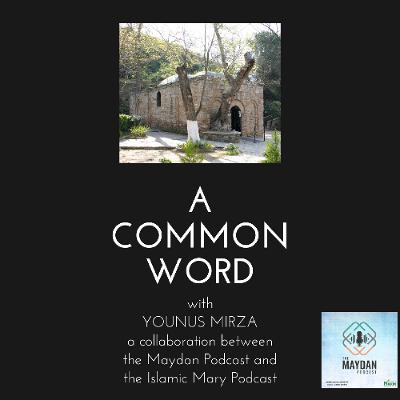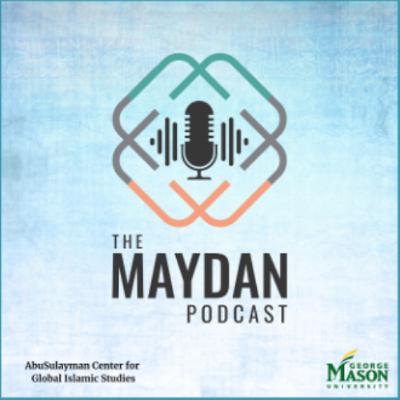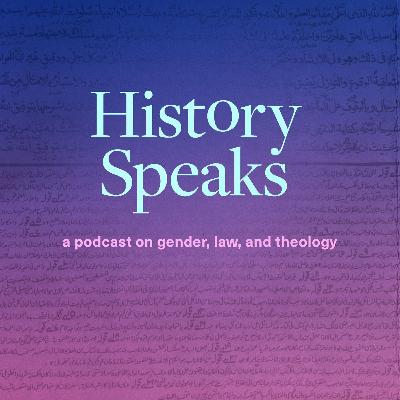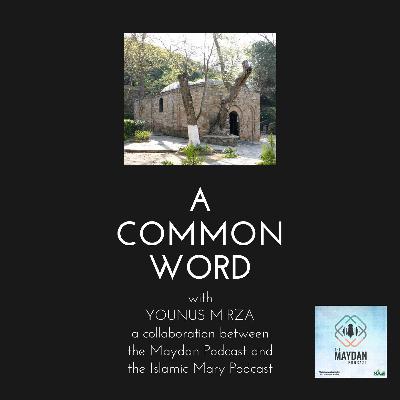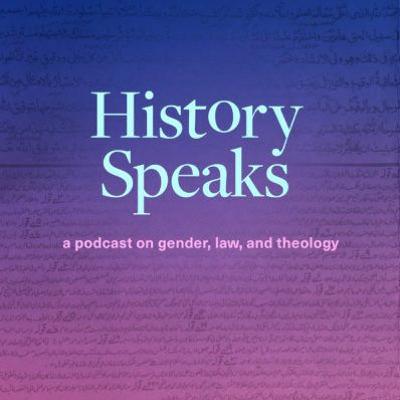Discover The Maydan Podcast
The Maydan Podcast

The Maydan Podcast
Author: The Maydan Podcast
Subscribed: 14Played: 70Subscribe
Share
© All rights reserved
Description
Maydan is an online publication of Ali Vural Ak Center for Global Islamic Studies at George Mason University, offering expert analysis on a wide variety of issues in the field of Islamic Studies for academic and public audiences alike.
79 Episodes
Reverse
In this episode of On The Square, guest host Tahirah Nailah Dean speaks with Dr. Aminah McBryde on the impact of singlism on the mental health of unmarried Muslims. Dr. Aminah McBryde is a recent PhD graduate in Community Health Sciences from the University of Illinois, Chicago, and holds a Master's in Public Health from the University at Buffalo in Community Health and Health Behavior. Tahirah Nailah Dean is a writer and lawyer currently living in Oakland, California.
In this episode of History Speaks, I talk with Dr. Natalie Khazaal, Associate Professor in the School of Modern Languages at Georgia Tech. Drawing from her research, we explore how racism, speciesism, and cultural bias are embedded in animated films and how they shape what audiences learn about difference and belonging. We also discuss the MARS test, an original intervention Dr. Ghazaal developed, with two other colleagues, to analyze these biases in media and animation. Our conversation is framed by a larger question: how does animation reflect and reinforce societal prejudices, often without viewers even noticing? We consider how creative choices, protest, and advocacy can challenge these narratives. Ultimately, we ask: what does it mean to see - and be seen - accurately in stories meant for everyone?
In this episode of History Speaks, Dr. Roshan Iqbal speaks with Dr. Younus Mirza, founding director of the Barzinji Institute for Global Virtual Learning at Shenandoah University, about his recent book The Islamic Mary. Together, they explore Maryam/Mary in the Qur’an, Hadith, Sufi thought, and the broader Muslim imagination. The conversation concludes by highlighting how significant Maryam/Mary is, how often her legacy is overlooked, and how much untapped potential it holds for Muslim spirituality and interfaith dialogue.
When I started my career, I was interested in the figure of Abraham/Ibrahim and how he could be a bridge figure between Christians, Jews and Muslims. However, as I wrote my book on "The Bible and the Qur'an: Biblical Figures in the Islamic Tradition," I became more interested in the figure of Mary and how she could bring Christians and Muslims together. This led me to the work of Rita George-Tvrtkovic, especially her book "Christian, Muslims and Mary" and subsequent articles. I sit down with Rita to learn about her innovative scholarship, institutional roles and recent academic interests.
Subscribe to A Common Word podcast which is available on the major podcast streaming services, such as Apple Podcasts and Spotify
Order my book “The Islamic Mary: Maryam Through the Centuries”
Visit the Maydan website for more podcasts, blogs and videos.
Visit my website to learn more about my bio, research, and blogs.
Join my listserve to be updated about my research, speaking and publications, especially my forthcoming book on the Islamic Mary.
Thanks for listening to A Common Word Podcast!
In this episode of History Speaks, Dr. Roshan Iqbal speaks with Dr.
Elliot Bazzano, Associate Professor at Le Moyne College, about
Islamophobia, the election of Zohran Mamdani, and what his success
means for U.S. Muslims. Together, they unpack the roots and impact of
Islamophobia, tracing how it shapes both public perception and
everyday Muslim life. Their conversation situates Mamdani’s rise
within a broader history, one shaped by the quiet labor of parents,
elders, and countless famous and not-famous Muslim figures who have
sustained their communities with resilience and care. They end by
reflecting on why Mamdani’s achievement holds such symbolic and
personal significance for Muslims across the United States.
Elliott Bazzano is an Associate Professor in the Department of
Religious Studies at Le Moyne College, where he teaches courses on
Islam and comparative religion. Professor Bazzano’s research focuses
on the interplay of Qur’anic interpretation, polemics, and mysticism
as well as identity and pedagogy in religious studies scholarship. He
co-edited Varieties of American Sufism (SUNY Press, 2020) with Marcia
Hermansen. His article “Normative Readings of the Qur’an: From the
Premodern Middle East to the Modern West,” appears in The Journal of
the American Academy of Religion (2016) and “Muslim in the Classroom:
Pedagogical Reflections on Disclosing Religious Identity” in Teaching
Theology in Religion (2016). Bazzano published two articles in
Religion Compass (2015) on Syrian polymath Ibn Taymiyya, “Ibn Taymiyya
Radical Polymath, Part I: Scholarly Perceptions” and “Ibn Taymiyya,
Radical Polymath, Part II: Intellectual Contributions.” He has
authored a book chapter, “Research Methods and Problems,” in The
Bloomsbury Companion to Islamic Studies (2013, 2015), and has
forthcoming chapters on Qur’an interpretation, dating, and Islamic
dietary guidelines Islam in Five Minutes (Bloomsbury, 2024). Bazzano
serves at co-chair on the Steering Committee for the Study of Islam
Section in the American Academy of Religion. In addition to finding
inspiration in the mystical percolations of the Sufis, including
coffee (pun intended), he finds his deepest wonder and joy in the
miracle of his two daughters who offer him limitless possibilities for
contemplating the mysteries of the universe.
In this episode, Dr. Roshan Iqbal speaks with Dr. Saba Fatima,
Professor of Philosophy at Southern Illinois University Edwardsville,
about her new book, A Brief Guide to Shia Islam: Beliefs, Practices,
and Exemplars. Together, they explore the core tenets, rich
traditions, and influential figures of Shi'a Islam in a conversation
designed to be accessible and engaging. This episode offers a warm and
informative introduction for students and curious listeners alike,
inviting deeper understanding and appreciation of one of Islam’s major
traditions.
When I started writing my book The Islamic Mary: Maryam Through the Centuries, I was drawn to the Qur'anic chapter of Mary or Surat Maryam. As I started to research the chapter, I came across the work of Shawkat Toorawa who focuses on the sound, rhyme and rhythm of the Qur'an and points out some of Surat Maryam's unique qualities and characteristics. I was thus excited to see that he has come out with a new book entitled The Devotional Qur'an which translates key chapters and verses that are used in Muslim daily life. I sit down with Shawkat to discuss his spiritual biography, academic background and new book.
Subscribe to A Common Word podcast which is available on the major podcast streaming services, such as Apple Podcasts and Spotify
Order my book “The Islamic Mary: Maryam Through the Centuries”
Visit the Maydan website for more podcasts, blogs and videos.
Visit my website to learn more about my bio, research, and blogs.
Join my listserve to be updated about my research, speaking and publications, especially my forthcoming book on the Islamic Mary.
Thanks for listening to A Common Word Podcast!
In this episode of History Speaks, I talk with Dr. Shabana Mir,
Associate Professor of Anthropology at American Islamic College and
author of the award-winning book Muslim American Women on Campus.
Drawing from rich ethnographic research, Dr. Mir explores how Muslim
women navigate elite U.S. university spaces while negotiating the
pressures of visibility, belonging, and religious identity. We discuss
everything from drinking culture and modesty to dating, politics, and
what it means to be unapologetically Muslim in a space that often
demands compromise. Our conversation is framed by a larger question:
what does it mean to belong when your presence is always marked? And
what can a win like Zohran Mamdani’s tell us about shifting narratives
in American public life?
Dr. Aminah Al Deen speaks with Baqiyah Adam
Dr. Besheer Mohamed and family speak with Dr. Aminah Al Deen about their journey into Islam and across the globe for the BAMI Project.
Dr. Aminah Al-Deen speaks with the late Dr. Mukhtar Curtis, a pioneer if Islamic movements in Philadelphia, together with Dr. Sherman Jackson
What does it mean to act with nobility in the face of certain loss? In
this episode of History Speaks, host Roshan Iqbal speaks with Dr.
Cyrus Ali Zargar, Al-Ghazali Distinguished Professor of Islamic
Studies at the University of Central Florida, about his powerful new
book The Ethics of Karbala. Whether you’re familiar with Karbala or
learning about it for the first time, this episode invites you to
reflect on the enduring power of principled resistance.
In the Chapter of Mary (Surat Maryam), Zechariah/Zakariyya foreshadows the coming of Maryam. I sit down with Maria Barga to discuss her article "Redeeming Zachariah" which uses the Qur'an to understand the Biblical narrative and to argue that Zachariah should be seen more in a positive light. Along the way, we discuss issues related to silence, suffering and divine questioning.
While writing my book the Islamic Mary, I came across various works on Christian-Muslim relations, in particular the groundbreaking Catholic document of Nostra Aetate which speaks about positive relations with Muslims. However, the document is silent on core issues of Muslim faith such as the Qur'an and the Prophet Muhammad. This led me to the writings of Jordan Denari Duffner who addresses these issues in her recent dissertation. I speak with Jordan about her spiritual biography, scholarship and activism.
Join me in this interview with Martin Nguyen on his edited book "An American Muslim Guide to the Art and Life of Preaching" by Sohaib Sultan. We discuss how the book was conceived, how he worked with Sohaib on the book before he passed away, and the work's major lessons and takeaways. Along the way, we discuss the ideas of friendship, community and legacy.
Younus Mirza sits down with Alexander Massad to discuss his new book "Witnessing God: Christians, Muslims, and the Comparative Theology of Missions". Alex is a strong proponent of Evangelical and Muslim dialogue and with wrestling with the claims of each religion. In the interview, we discuss his spiritual biography, interest in Christian-Muslim dialogue, program at Wheaton College and theological views.
In this episode of History Speaks, Roshan Iqbal is joined by Celene Ibrahim, Oludamini Ogunnaike, and Younus Mirza to explore distinct fasting practices and their inner and outer dimensions in Islamic scholarship, especially focusing on Al-Ghazali’s seminal book, Inner Dimensions of Islamic Practice. Part of a series designed as a classroom resource and a primer for lay audiences, this episode provides valuable insights into a foundational topic.
A Common Word podcast focuses on Islam and Interreligious Studies. It is inspired by the Qur'anic verse 3:64 which calls the People of the Book to "a common word" and the A Common Word Initiative held in 2007 in Amman, Jordan. It interviews scholars, activists and practitioners in the realm of bridge building, peace studies and social justice.
In this episode of On The Square, Sapelo Square’s Executive Director Latasha Rouseau talks with Tiffany Green-Abdullah, author of The Bean Pie: A Remembering of Our Family’s Faith, Fortitude and Forgiveness.
Tiffany starts by sharing how her great aunt, Daisy Kennon, crafted the original bean pie recipe for the Nation of Islam, which would later become a staple in the Black Muslim community. Tiffany grew up learning about the integral role her aunt played in the bean pie through family oral tradition. Spurred by a desire to dig deeper, she began a journey that would require much reflection on the lives of her aunt, grandmother and mother. Delving into her family’s history reopened old wounds and uncovered past traumas that were lying beneath the surface. The results of her efforts is a testament to the healing power of faith and forgiveness.
Guest Bio:
Tiffany Green-Abdullah is a visionary leader and speaker in learning innovations, community development, and life coaching. Hailing from Chicago, she was a first-generation college student and has obtained multiple degrees, including a Bachelors in economics and a Masters of Education, both from Vanderbilt University.
When she isn’t writing, Tiffany is the Chief Executive Officer at her consulting firm, Tiffany Green Consultants as well as giving back to the community through committee and board involvement. She lives in Atlanta with her son. Tiffany dreams of turning her writings into movies and television shows.
In this episode of History Speaks, Roshan Iqbal speaks with Cyrus Zargar on the role of storytelling and virtue ethics in the work of Jalāl al-Dīn Muḥammad Rūmī, the 13th-century jurist, philosopher, poet, and polymath. The conversation delves particularly into the virtue of ‘compassion’ within the context of the story ‘The Tale of the Sufi and the Judge,’ from Maulana Rūmī’s magnum opus, the Mathnawī-i Maʿnawī (“The Rhymed Couplets of Spiritual Signification”).
Dr. Roshan Iqbal hails from a small hamlet of 20 million–Karachi, Pakistan. She received her PhD in Islamic Studies from Georgetown University. Prior to this she read for her MPhil at the University of Cambridge. She has studied in Pakistan, the US, Morocco, Egypt, Jordon, the UK, and Iran. Her research interests include gender and sexuality in the Qur’an, Islamic Law, Film and Media Studies, and modern Muslim intellectuals. Her recent book is titled, ‘Marital and Sexual Ethics in Islamic Law: Rethinking Temporary Marriage.’ As an associate professor at Agnes Scott College, she teaches classes in the Religious Studies department and also classes that are cross-listed with Women, Gender, and Sexuality Studies and Film Studies. When she is not working, she loves talking to her family and friends on the phone (thank you, unlimited plans), tracking fashion (sartorial flourishes are such fun), watching films (love! love! love!), reading novels (never enough), painting watercolors (less and less poorly), and cooking new dishes (sometimes successfully).
Cyrus Ali Zargar is Al-Ghazali Distinguished Professor of Islamic Studies and Professor in the Department of Philosophy at the University of Central Florida. Zargar’s research interests focus on the metaphysical, aesthetic, and ethical intersections between Sufism and Islamic philosophy. His first book, Sufi Aesthetics: Beauty, Love, and the Human Form in Ibn ʿArabi and ʿIraqi, was published in 2011 by the University of South Carolina Press. His most recent book, The Polished Mirror: Storytelling and the Pursuit of Virtue in Islamic Philosophy and Sufism, was published in 2017 by Oneworld Press. His forthcoming book concerns Sufi ethics and the theme of self-transformation in the corpus of the Persian poet ʿAṭṭār.




